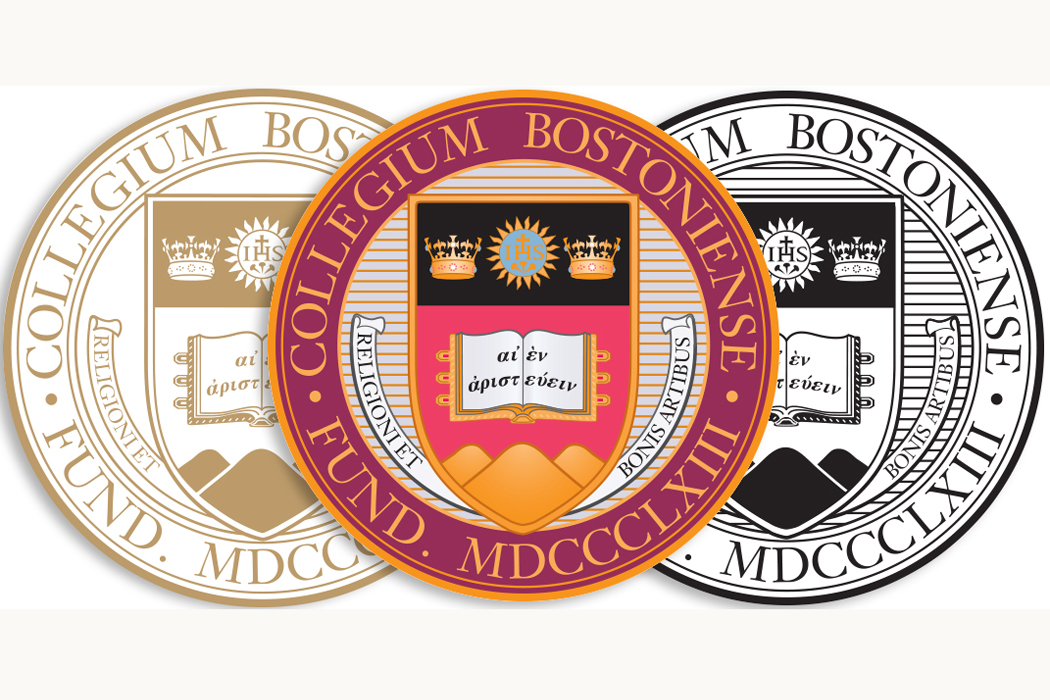
University Convocation
At a time when American higher education is roiled by changing demographics, a fraught and combative political climate, and increased public skepticism over the value of a college degree, Boston College senior administrators expressed confidence at the annual University Convocation that BC is poised not only to survive but thrive.
“Boston College has certainly not been immune from these new realities,” said University President William P. Leahy, S.J., “but it has come through them relatively unscathed.”
At the August 27 gathering in Robsham Theater, Fr. Leahy, along with Executive Vice President Michael Lochhead and David Quigley, the Robert L. and Judith T. Winston Provost and Dean of Faculties, each offered their traditional state-of-Boston College assessment from academic, financial, operational, and other vantage points while also providing a larger, general context for these trends.
Making his final Convocation address as University president, Fr. Leahy—who will retire next summer and be succeeded by John T. Butler, S.J.—noted the federal government’s aggressive actions against higher education institutions including research grant suspensions, and delay, denial, or cancellation of visas for international students and scholars. Amid these and other pressures, such as the declining college-age population, many colleges and universities are contemplating, or enacting, hiring freezes, layoffs, and budget cuts.
Although BC has weathered these storms, said Fr. Leahy, the effects of inflation and rising operational costs are not inescapable, and the University is in the process of reducing expenses by five percent during the next two years. “I am grateful to all those who have helped identify and implement budget savings,” he said. “It’s not easy, but very necessary now.”
BC’s progress in the last five decades has solidified its reputation as “an institution with vision, stability, and momentum, and is more needed today than ever and wants to respond to upcoming challenges and opportunities,” said Fr. Leahy, pointing to core strengths such as BC’s mission and heritage, institutional culture, strategic planning and assessment, and proximity to Boston.
Fr. Leahy also outlined the upcoming presidential transition: Beginning in January, Fr. Butler—currently on sabbatical—will start working closely with Fr. Leahy and attend University-related meetings and functions, until he formally assumes the presidency in the summer.
Lochhead said fiscal year 2025 saw another strong operating performance for BC, driven by such factors as undergraduate enrollment, interest income, and endowment return—he noted that the endowment was valued earlier this year at $4.3 billion, an all-time high for the University’s balance sheet.
Lochhead gave an update on campus facilities, including current construction projects such as Newton East—located across Centre Street from Newton Campus—which will be the future location of the BC School of Social Work when the project is finished (its estimated completion is in the spring of 2027), and the Catholic Religious Archives building on Brighton Campus, adjacent to the Theology and Ministry Library, due to open next year. He also noted recent work at the Eagle’s Nest in McElroy Commons and Messina College on the Brookline Campus, including renovations in the administration building at the West and East Village residence halls.
A major renovation of Carney Hall is anticipated to begin in 2028, noted Lochhead; during the past summer, construction started at several campus locations in anticipation of “offloads” from the Carney project. Planning continues for projects in McElroy Commons and Conte Forum, he said, and details will be forthcoming.
Lochhead also touched on the 10-year progress of the EagleApps project, which provides a “one-stop shopping” platform to manage academic and enrollment activities for students, faculty, and administrators. Through 14 registration/billing cycles to date, he said, the system has provided substantial risk mitigation and a modern technology platform, one which enabled BC to successfully integrate Messina College into the student information system.
Expressing his appreciation for all those who have worked to make BC an elite institution, Lochhead said fiscal year 2026 will “entail some difficult decisions and trade-offs. Our focus continues to be on remaining an accessible and affordable university, especially for lower-income families.”
In his remarks, Quigley reviewed highlights from the previous academic year, among them the opening of Messina College; the graduation of the first cohort of students in the Human-Centered Engineering program, and in the University’s Prison Education Program at MCI-Shirley; the recruitment of yet another outstanding first-year class; and the continuing campus conversations on the benefits and dangers of generative AI.
He also noted the volatility in American higher education that flared this past spring in the wake of presidential actions that affected the status of international students and scholars, as well as funding for sponsored research. BC was not spared, he added: Visas for 10 graduate students and one undergraduate were rejected, and administrators and faculty are trying to navigate the changed research landscape. Echoing Fr. Leahy’s and Lochhead’s remarks about operating budget restraints, Quigley said faculty hires will be limited this year and next—but he noted that BC has welcomed another coterie of talented faculty members for 2025-2026.
Shifting his focus, Quigley spoke about challenges and opportunities facing Boston College, and higher education in general, for the remainder of the decade. Despite the questions facing many American colleges and universities, he said, BC—a well-run institution with a well-defined mission—has every reason to continue its success. The University’s strengths in formative education in particular positions it for the development of ethical leadership and conversations about the intersection of faith and culture.
He cited the vision of past BC founder John McElroy, S.J., and Thomas Gasson, S.J., who served as president from 1907-1914, as a signpost for the University. “They saw Boston College as a place to bring our talents, our interests, and our passions in service to others,” he said. “We should continue to think about how we can best take up that invitation and make the most of it.”
